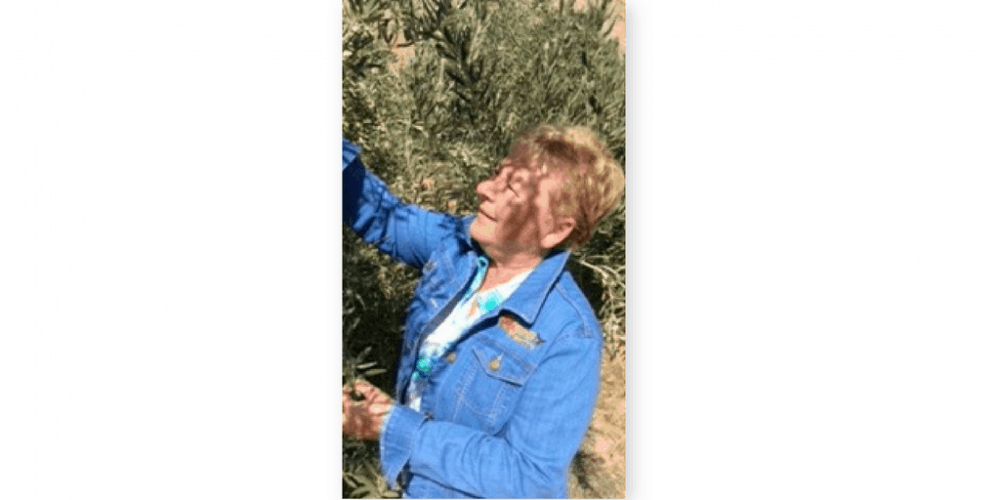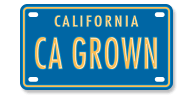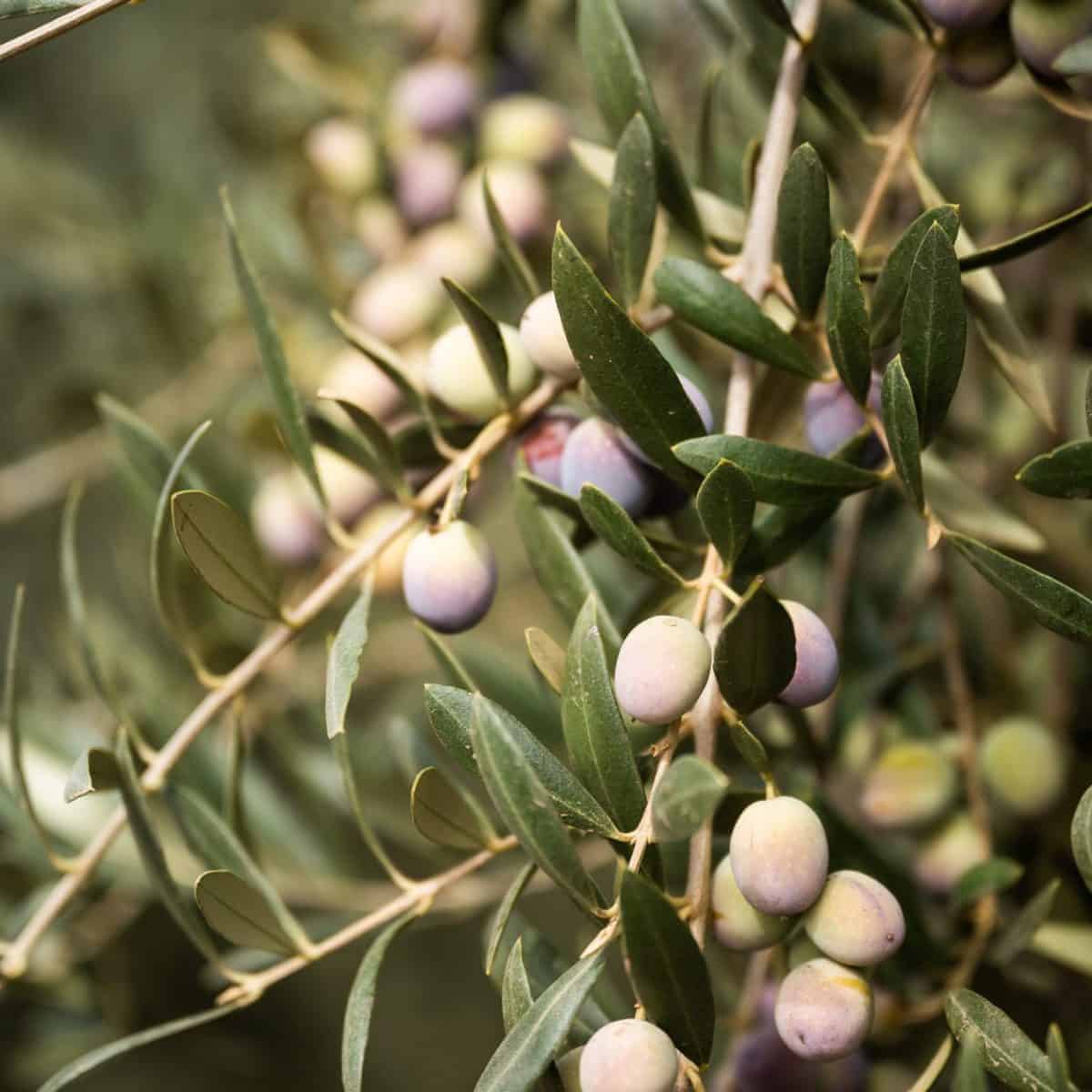Meet a Farmer: Clotilde Julien of Olea Farms

Meet Clotilde Julien, co-owner of Olea Farms in Templeton, CA. After moving from France to California with her husband, the duo opened Olea Farms in 2002 after noticing the Central Coast had the perfect climate for cultivating olive oil. Find out why Clotilde likes to learn about olive oil (even on vacation) and why she’s so passionate about the product she creates!
CA GROWN: What are you doing today?
Clotilde: This morning I was trying to figure out how many olives we’re going to get, so it’s been a little slower. I have a truck pulling up with one bin right now and I’m trying to get things rolling so that we have enough work because if we don’t have enough olives, then the mill is running for nothing so we have to be careful with that. It never stops – we do the farming, bottling, pruning, consulting and pretty much everything in between from the orchard to the final product. Our farm processes up to two tons of olives an hour, which means that olives come off the tree and in less than two hours, they’re turned into olive oil. The product is not only very fresh, but we’re also involved in all parts of the process. Every day is different though, I can wake up in the morning and have it all planned out, but it doesn’t always go the way I planned and I’m used to it by now. I suppose all farmers are in the same situation, you have to go with whatever happens.
CA GROWN: What is your favorite thing about farming?
Clotilde: It’s different every day, it’s never boring and one minute you can be talking about advertising and marketing strategies and then after that you’re doing some farming and looking after the trees. We also walk the olive orchard everyday for two reasons: to make sure we exercise and to check the irrigation and the crop. Then I’m doing accounting and other tasks and constantly talking to other farmers about their olives. Then we do deliveries and we have a website where we constantly fill the orders and send them out. I try to keep in touch with our chefs because the relationship between the chefs/restaurants and us is very important to us. We’re starting to get into harvest season, so I’ll ask them if they want something more or different and it’s fun because they can participate in a way, with how we’re making the olive oil. They like to come out and see the process and we like to keep them informed of what we’re doing.
CA GROWN: How do you give back to the community?
Clotilde: We’ve been giving back for 15 years, since we started this business by providing a lot of education. We go out to all the possible events and do a lot of educating because it’s important that people know why we’re making quality olive oil. We’ve done events with Cal Poly where they come to the farm and we talk to them about the process and they visit the mill or do olive oil tastings. We also do free tastings where people can taste the product and see the process of how it’s made. We donate olive oil for gift baskets and fundraiser dinners as well. Every farmer in our area usually donates something, so we’ll donate the olive oil that the chefs use for cooking and the olive oil that goes on the tables. We also sponsor 4-H students who raise goats. We had some young kids come out a few years ago and see the farm. We give them olive oil that they can sell to raise money at the fairs so they can do what they need to do to raise their goats and get them ready to be auctioned off. We try to give back to the community as much as possible because we live in a great area and it’s very important to us.
CA GROWN: What advice would you give to someone who wants to become a farmer?
Clotilde: That’s a tough one. I would say one of the first things is if you want to become a farmer and don’t know what type of farmer you want to be, work on a farm for awhile to get the feel for the farm and get a feel for the direction you want to go in. Farming is great because you are your own boss and the weather is the only boss above you. It gives you a great quality of life to live the life you want, unlike the corporate world which my husband and I were in before this. We go to bed when we’re tired and wake up when we’re not tired anymore, so we don’t use alarm clocks. We wake up ready to go and ready to have fun with whatever job we’re doing that day and we love it. And once you find your niche, do some type of schooling so you can learn as much as possible. It has to become a passion because sometimes people think it’s cool to do some things on the farm and then relax the rest of the day or go on vacation. But that’s not true – you have to be there and participate and keep an eye on the things you’re growing and raising. You can make a great life with farming and it’s very important to let people know that farming is a gratifying job because when the end product comes out and you pick your babies off the tree or milk the cows, it’s so rewarding because it’s so good for the planet and for humans and it’s a great feeling.
CA GROWN: What drew you into the farming profession?
Clotilde: Two things: we always had a passion for olive oil and the quality of life it provides. We’re originally from France and moved here in 2000 and started the farm in 2002. We studied at UC Davis for two years before planting our olive trees, we did the International Olive Oil School, we took milling classes at Fresno State and got together with other millers who have big and small operations to talk about different problems they faced. It’s nice to know that even the big operations have the same problems as us and it’s great to be able to communicate with people who do the same job. The more you get educated in what you’re doing, the bigger your passion becomes and that’s what makes the product great.
CA GROWN: What’s your favorite part of the olive oil-making process?
Clotilde: The milling – it’s like a party. The fruit come off the tree, it goes through the machine and comes out as olive oil. There’s nothing more gratifying than seeing the oil come out of the machine and seeing the farmer taste it and admire it. It’s like a party at the end because everyone is happy and pleased with the product. The harvest season is just the best because that’s where everything comes together and that’s important. Hard work and being happy are important.
CA GROWN: What has contributed to your success so far and what are you doing to ensure continued success going forward?
Clotilde: Definitely the education that we can give to others. As part of our business, we install olive orchards for other people and then we do consulting work with them and talk to other people about growing olives. It’s important to continue planting olive trees in California so that we can continue to grow this industry even more. Going to events to promote our product and teach people how to use olive oil is also important so we can talk to people about the many health benefits of using olive oil. From bringing down the bad cholesterol and raising the good one, to lowering the risks of heart disease and high blood pressure and showing people that when you eat olive oil, what you’re putting in your body is good for you. There are no preservatives and you know what you’re eating, unlike a lot of other products. We have so many customers that tell us now that they’re using olive oil instead of other products and they feel so much better and healthier than they did before.
CA GROWN: What are your hobbies or pastimes when you’re not farming?
Clotilde: We make sure we walk the orchards every day, we like to take long bike rides and we travel as much as possible to areas that are growing olives. We went to Chile three years ago to see what they were doing because they started farming olive oil three years after California did, and we noticed they were using similar technology, which was interesting. We’ve also gone to Italy, which uses more traditional techniques, and Spain is doing things similar to the US. It’s always nice to see what other people are doing because you can correct things that you need to or you can tell customers you saw this done in Chile or Spain and it makes things more exotic.

